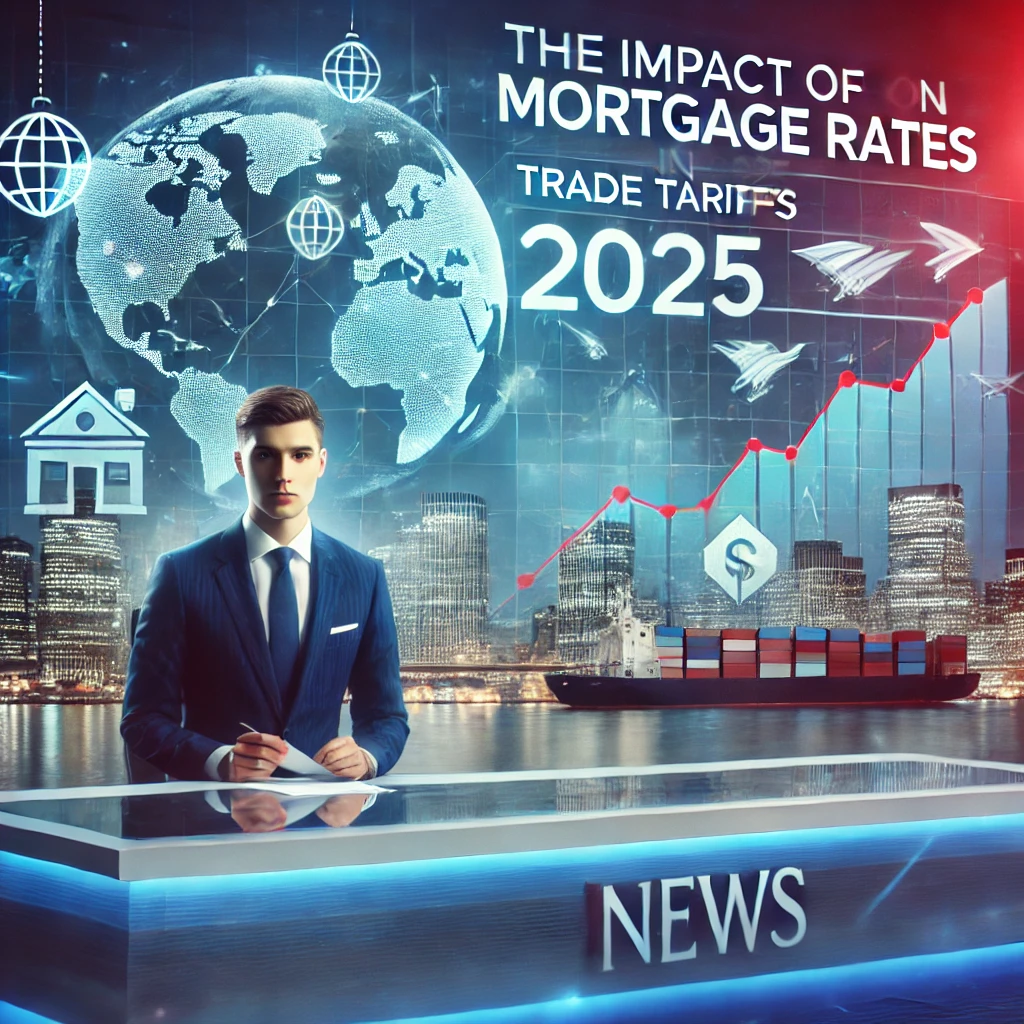Incoming U.S. President Donald Trump has pledged to impose 25% tariffs on all Canadian imports. If these tariffs are implemented and Canada retaliates, experts predict significant economic consequences for 2025, including a potential 2.5% hit to Canada’s GDP, unemployment nearing 8.0%, and inflation spiking to 7.2%.
While the economic damage caused by the Smoot-Hawley Tariff Act of 1930 was thought to have settled the debate on broad tariffs, the possibility of new trade disruptions has reignited concerns. Amid this uncertainty, the potential impact on mortgage rates remains a key topic of discussion.
Wouldn’t Higher Inflation Push Mortgage Rates Up?
It’s a logical question, especially given the Bank of Canada’s (BoC) mandate to control inflation. Over the past two years, the BoC raised interest rates to combat post-pandemic inflation, which peaked at 8.0%. However, not all inflation is created equal.
Tariff-induced inflation, often referred to as push-cost inflation, differs from demand-pull inflation, which occurs when prices rise due to strong consumer demand and limited supply. Push-cost inflation results from increased input costs for businesses, such as those caused by tariffs, which are then passed on to consumers.
While the BoC typically raises rates to cool demand-pull inflation, doing so to combat push-cost inflation could worsen economic conditions, potentially leading to stagflation—a dangerous mix of high inflation, weak economic growth, and rising unemployment.
Canada’s economy is still recovering from recent rate hikes, and current GDP projections suggest it may struggle to withstand the full impact of widespread tariffs.
Variable Mortgage Rates: A Potential Silver Lining
Variable mortgage rates, which fluctuate with the BoC’s interest rate decisions, could see significant declines in 2025 if tariffs weaken the economy. If the BoC lowers rates to stimulate growth, variable rates could drop further than initially expected, offering homeowners potential savings on mortgage payments or reduced amortization periods for those with fixed-payment variable mortgages.
Dan Eisner, founder and CEO of True North Mortgage, notes that in a tariff-driven economic environment, “a variable rate could be the mortgage ace up a homeowner’s sleeve amid economic uncertainty. They can always switch to a fixed rate, penalty-free, if they get nervous.”
The Bottom Line
While the full impact of Trump’s proposed tariffs remains uncertain, the potential for economic disruption in 2025 is significant. Homeowners and prospective buyers should stay informed and consider how variable rates could offer flexibility in navigating these uncertain times.
For the latest updates on how tariffs may affect mortgage rates, check back regularly.
